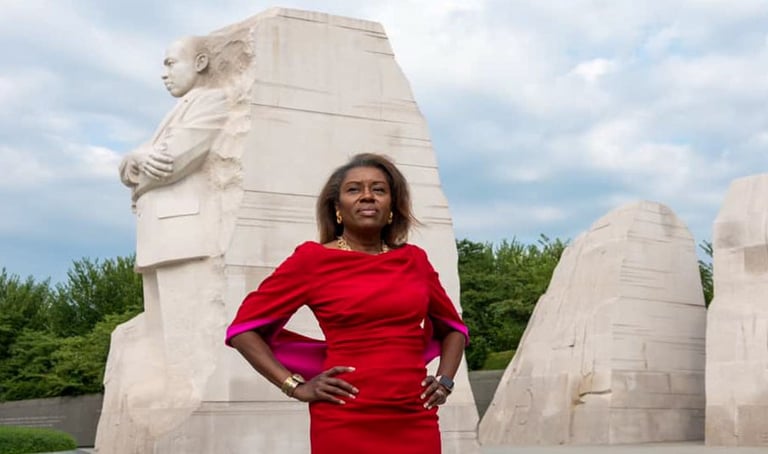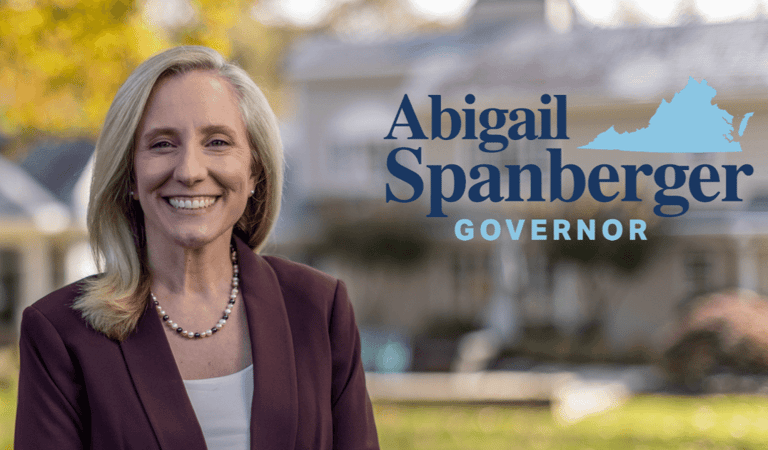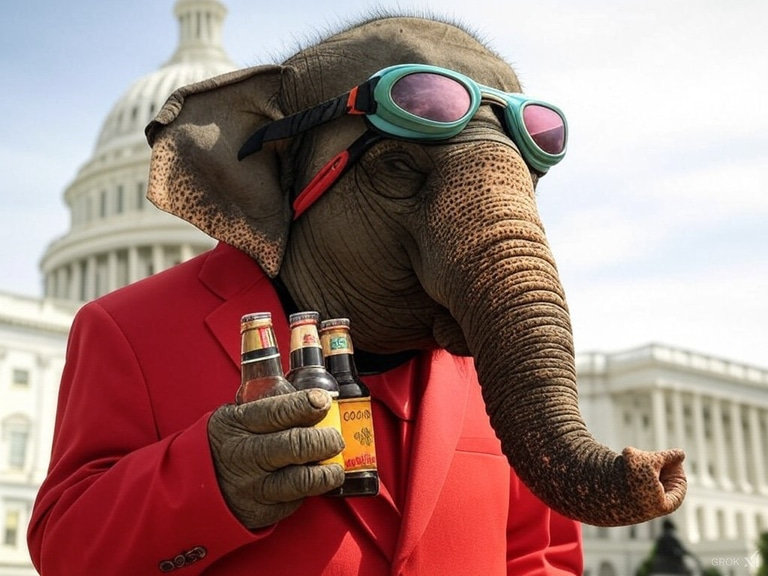Only the best information from the Poolside politician himself

Virginia Governorship Showdown
The competitive Election we all deserve





In 2021, Republican Glenn Youngkin was successful
in his endeavor to become the Commonwealth of Virginia's 74th Governor, flipping the Governor's Mansion back to the GOP after eight years of Democratic control. Earning a majority of the vote (50.58%) and winning by around 63,000 votes, his Lieutenant Governor Winsome Earle-Sears looks to ride the Youngkin popularity wave and improve on those results in 2025 and elevate herself to the Governor's Mansion in Richmond. The road to get there however will not be easy, as her main opponent, Democratic Congresswoman Abigail Spanberger is running for the Democratic nomination, and is a serious threat to become the Commonwealth's 75th Governor as well. Below we will take a deeper dive into the race, and what we should expect to see.

Extended State Overview of Virginia:
Electoral votes: 13
Current Governor: Glenn Youngkin (R, since 2022)
Current Senators:
Senior Senator: Mark Warner (D, since 2009)
Junior Senator: Tim Kaine (D, since 2013)
Prior to their Senate election victories, both of these men served as the governor of Virginia.
Current House Delegation: VA-01: Rob Wittman (R, since 2007) VA-02: Jen Kiggans (R, since 2023) VA-03: Bobby Scott (R, since 1993) VA-04: Jennifer McClellan (D, since 2023) VA-05: Bob Good (R, since 2021) VA-06: Ben Cline (R, since 2019) VA-07: Abigail Spanberger (D, since 2019, running for Governor in 2025) VA-08: Don Beyer (D, since 2015) VA-09: Morgan Griffith (R, since 2011) VA-10: Jennifer Wexton (D, since 2019) VA-11: Gerry Connolly (D, since 2009)
State Moniker: Old Dominion
Admission to the Union: June 25, 1788 (10th state)
Main state issues:
Healthcare Access: Virginia has struggled with access to affordable healthcare, particularly in rural areas.
Education Funding: There is an ongoing debate about the funding of public schools and universities, with calls for increased investment to ensure equal access to quality education across the state.
Economic Development: Job growth and economic diversification, especially outside the Northern Virginia region, is a key challenge. The state continues to focus on attracting new industries, such as technology and cybersecurity.
Transportation and Infrastructure: As a major transit hub, Virginia faces challenges with congestion and the need for upgrades to roads, rail systems, and public transportation networks, particularly in the Washington, D.C. metro area.
Affordable Housing: Rapid growth in the Northern Virginia area has driven up housing costs, making affordable housing a significant issue.
Agriculture: Agriculture remains an important industry in the southern and western parts of the state. Virginia is a leading producer of tobacco, poultry, and wine, with a growing agritourism sector that attracts visitors to vineyards, farms, and rural areas.
Tourism: Virginia’s rich historical heritage and natural beauty draw millions of visitors annually. Sites like Colonial Williamsburg, Shenandoah National Park, and the beaches of Virginia Beach play an essential role in boosting the state’s tourism industry.
Water pollution: The Chesapeake Bay, the largest estuary in the U.S., suffers from pollution largely due to agricultural runoff, wastewater, and stormwater. Fertilizers, pesticides, and animal waste from farms, particularly in Virginia, Maryland, and Pennsylvania, contribute to nutrient pollution, which results in harmful algae blooms. These blooms deplete oxygen in the water, creating “dead zones” that harm aquatic life. Additionally, urban runoff, sewage, and industrial discharges also degrade water quality, threatening the ecosystem’s health. Efforts to restore the bay have been ongoing, but challenges remain in reducing nutrient and sediment loads entering the bay from its vast watershed.
2020 Presidential Election Results:
Joseph R. Biden Jr./Kamala Harris (Democrat): 54.11%
Donald J. Trump/Michael R. Pence (Republican): 44%
State Demographics:
Ethnic breakdown: 60% White, 19% Black, 10% Latino, 7% Asian
Population: 8.6 million
Historical Political Landscape:
Virginia was once part of the solid Republican South, but went Democrat for Barack Obama in 2008 (first time since Lyndon Johnson’s 1964 victory) and has continued voting blue in recent elections. On the state level, the Virginia Republican Party has battled back, flipping the governor’s mansion in 2021, with Glenn Youngkin’s victory. The Governor is often discussed as a potential candidate to run for POTUS.
The state of Virginia has produced 8 Presidents, (George Washington, Thomas Jefferson, James Madison, James Monroe, William Henry Harrison, John Tyler, Zachary Taylor, and Woodrow Wilson.)
Jamestown was the first permanent English settlement in America, being established in 1607.
The Battle of Yorktown (1781) took place in Virginia, where General George Washington’s forces, alongside the assistance of French allies, secured the British surrender, which ended the Revolutionary War.
Major City/Counties/Key Counties:
Major Cities: Richmond (capital), Virginia Beach, Norfolk, Chesapeake, Arlington, Alexandria
Key Counties: Fairfax County, Loudoun County, Prince William County, Chesterfield County, Henrico County

Timeline of Significant Events:
November 13, 2023: Democratic Representative Abigail Spanberger announces her candidacy for Governor.
September 5, 2024: Incumbent Republican Lieutenant Governor Winsome Earle-Sears announces her candidacy for Governor.
November 18, 2024: Governor Glenn Youngkin endorses his LG for Governor.
December 12, 2024: Governor Youngkin's administration calls for the end of sanctuary cities in the Commonwealth of Virginia.
January 8, 2025: Virginia Legislative Session begins.
June 17, 2025: Primary Election day for both parties.
TBD: State Party Conventions.
TBD: Debates.

Race Overview:
The fact of Virginia Governor Glenn Youngkin's election victory in 2021 gave the Virginia GOP new hope, and a significant amount of national attention. Before his victory, Virginia Democrats had won the previous two gubernatorial elections in the state (Terry McAuliffe, Ralph Northam) and McAuliffe was attempting to earn a second non-consecutive term again in 2021. Since, Youngkin has been speculated as a future GOP Presidential Candidate. The Virginia Governor had massive coattails in his electoral victory, bringing along side him Lieutenant Governor Winsome Earl-Sears and Attorney General Jason Miyares to state politics as well. The 2025 election provides Virginia Republicans a chance to start a winning streak and continue to have influence in Richmond.
On the Democratic side, a new voice has emerged as the party moves beyond the era of Terry McAuliffe and Ralph Northam. Incumbent VA-07 Representative Abigail Spanberger, who is departing from Congress on Jan 3, has emerged as a serious vocal voice in Virginia politics. Before her successful bid for Congress in 2018, Spanberger had no prior electoral history. Known for her moderate stances, she has cultivated a pragmatic brand of politics that resonates well in her district. Since being elected in 2018, Spanberger has consistently grown her vote share in each reelection, cementing her position as a rising political force. Her victory in 2018 marked a significant shift in Virginia’s political landscape, as her district—previously represented by Republicans for nearly four decades—began to tilt toward purple.
The district's Republican dominance dates back to 1981, when Thomas Jerome Billey Jr. represented VA-03. Following the annual decade redistricting in 1991, Billey’s district was absorbed into the newly created VA-07, though the land and population largely remained the same. Billey’s successor, Eric Cantor (2001-2014), rose through the ranks of House Republican leadership, eventually becoming Majority Leader. However, Cantor’s tenure ended unexpectedly in 2014 when he was defeated in a primary challenge. His successor, Republican Dave Brat, held the seat until Spanberger’s 2018 victory, which broke the GOP’s long-standing hold on the district. In the 2024 election, Democrat Eugene Vindman successfully succeeded Abigail Spanberger in Congress, demonstrating that Spanberger's political legacy had a lasting influence on the district even after her departure. Vindman's victory highlighted the enduring appeal of Spanberger's brand and politics, which resonated with voters in Virginia's 7th District.
Now, On the Republican side, incumbent Lieutenant Governor Winsome Earle-Sears has received the political "torch" from Governor Glenn Youngkin, as she launches her own campaign for the governorship. With her strong conservative record and a growing profile within the party, Earle-Sears is poised to make her mark in the race. Before ascending to Lieutenant Governor, Winsome-Sears was elected to the 90th district in the Virginia House Delegates in 2001, defeating a longtime Democratic incumbent. After, she ran for United States Congress in 2004, unsuccessfully challenging incumbent Democratic Congressman Bobby Scott in VA-03. With a victory for Governor, Winsome-Sears would become the first black woman in American history to become governor of any state.
While Spanberger has a solid core base of support in her Congressional district, a key advantage for Winsome-Sears is her statewide name ID.
